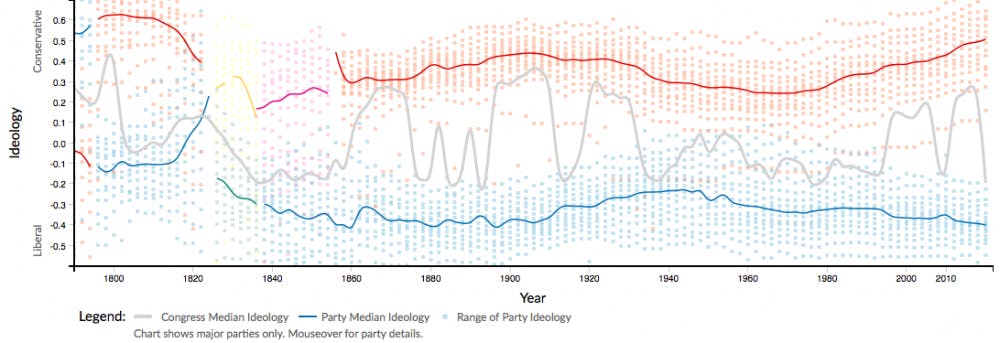Congress ideology rankings by the American Conservative Union Foundation highlighted the split partisanship of Wisconsin’s legislators, maintaining the state’s notorious purple reputation.
The ACUF’s annual rankings score legislators according to how they vote for conservative-leaning bills. This session’s scorecard was composed of 25 bills in the U.S. House of Representatives and 20 bills in the U.S. Senate.
In its 48th edition, four Wisconsin Republican congressmen rated above 88 percent by the ACUF — Rep. Jim Sensenbrenner, 96 percent; Sen. Ron Johnson, 95 percent; Rep. Mike Gallagher, 92 percent and Rep. Glenn Grothman, 88 percent — for 2018.
Three of their Democratic counterparts scored below 8 eight percent — Rep. Gwen Moore, eight percent, Sen. Tammy Baldwin, five percent and Rep. Mark Pocan, four percent — qualifying them for ACUF’s list, “the coalition of the radical left.”
However, experts believe the radical numbers presented above is more extreme than reality because of the survey’s authors — an interest group with a skewed design nature. UW-Madison political science professor Eleanor Powell said the scores are influenced by the ACUF’s goal of separating lawmakers into “friends and foes of the group.”
“Today's Congress is quite polarized — in that the average Democrat in Congress and the average Republican in Congress display very different voting patterns,” Powell explained. “Because interest groups are designed to separate lawmakers into two camps, they typically aren't a very useful way to assess the ideology or partisanship of Congress as a whole.”
However, in the history of American political parties, the partisan divide of voter ideologies has never been more extreme than it is today, according to data collected by the political science department at UCLA.

Jeffrey Lewis, Keith Poole, Howard Rosenthal, Adam Boche, Aaron Rudkin, and Luke Sonnet Voteview: Congressional Roll-Call Votes Database.
According to the graph, the Republican party as a whole is the most conservative-leaning it has ever been, calculated based on gathered roll call voters’ ideology scores. The 116th Congress’ significantly liberal leaning is due to the shifted balance of powers in the last election.
For this reason, it is possible the ACUF’s survey truly is reflective of Wisconsin’s Congress, whose divided ideologies parallel the country’s contentious political time.






